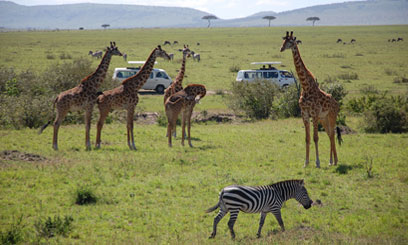
NAIROBI, Kenya, Mar 5 – World Animal Protection (WAP) has launched the ‘Wildlife Not Profit’ campaign, advocating for an end to wildlife farming and urging governments to take immediate action.
This is after a recent report exposed the widespread exploitation of wild animals, revealing how billions are bred and traded for various purposes such as pets, entertainment, food, fashion, and traditional medicine.
The report highlighted a severe lack of transparency and monitoring within the global multi-billion-dollar wildlife exploitation industry.
WAP noted that animals are treated as commodities rather than living beings, subjected to malnourishment, disease, stress, injuries, and even cannibalism, and the unhygienic conditions put their caretakers and the public at risk of zoonotic diseases potentially reaching pandemic proportions.
The report highlighted cases like big cat farming in South Africa, bear farming in China, and elephant breeding in Thailand, where animals are subjected to cruelty for profit.
The public has been encouraged to support the campaign by signing a pledge against wildlife exploitation.
Edith Kabesiime, the Wildlife Campaign Manager, emphasized the cruelty and devastation inflicted upon animals by captive wildlife farming, as revealed in the report.
She called for an immediate end to this practice, whether it’s for the pet industry, trophy hunting, entertainment, traditional medicine, decoration, or fashion.
She stressed that wild animals deserve to live freely in their natural habitats.
“Governments, the private sector, and consumers must prioritise efforts to ensure that wildlife is protected in their natural habitats. The public must also be guarded against the very real threat of zoonotic diseases from wildlife farms,” she elaborated.
Kabesiime insisted that the animals trapped in captive farming should be the last generation exploited for profit, emphasizing that wildlife is not ours to exploit.
“Wildlife is not ours to exploit, and we can all play a part in protecting animals from cruel commercial exploitation. Join us in saying no to the cruel farming of wild animals,” she said.
WAP urges governments worldwide to implement a comprehensive and timely phase-out of commercial wildlife farms and associated trade.
Additionally, they advocate for increased support for alternative livelihoods for communities involved in wildlife farming to ensure a just transition away from these harmful practices.
Records reveal that a minimum of 900 million wild animals have been bred and subjected to a life of captivity, ultimately meeting their demise to meet the demands of commercial industries.
However, this figure likely represents only a fraction of the true scale of the exploitative industry, which could involve as many as 5.5 billion wild animals globally, based on the best estimate derived from available data.
